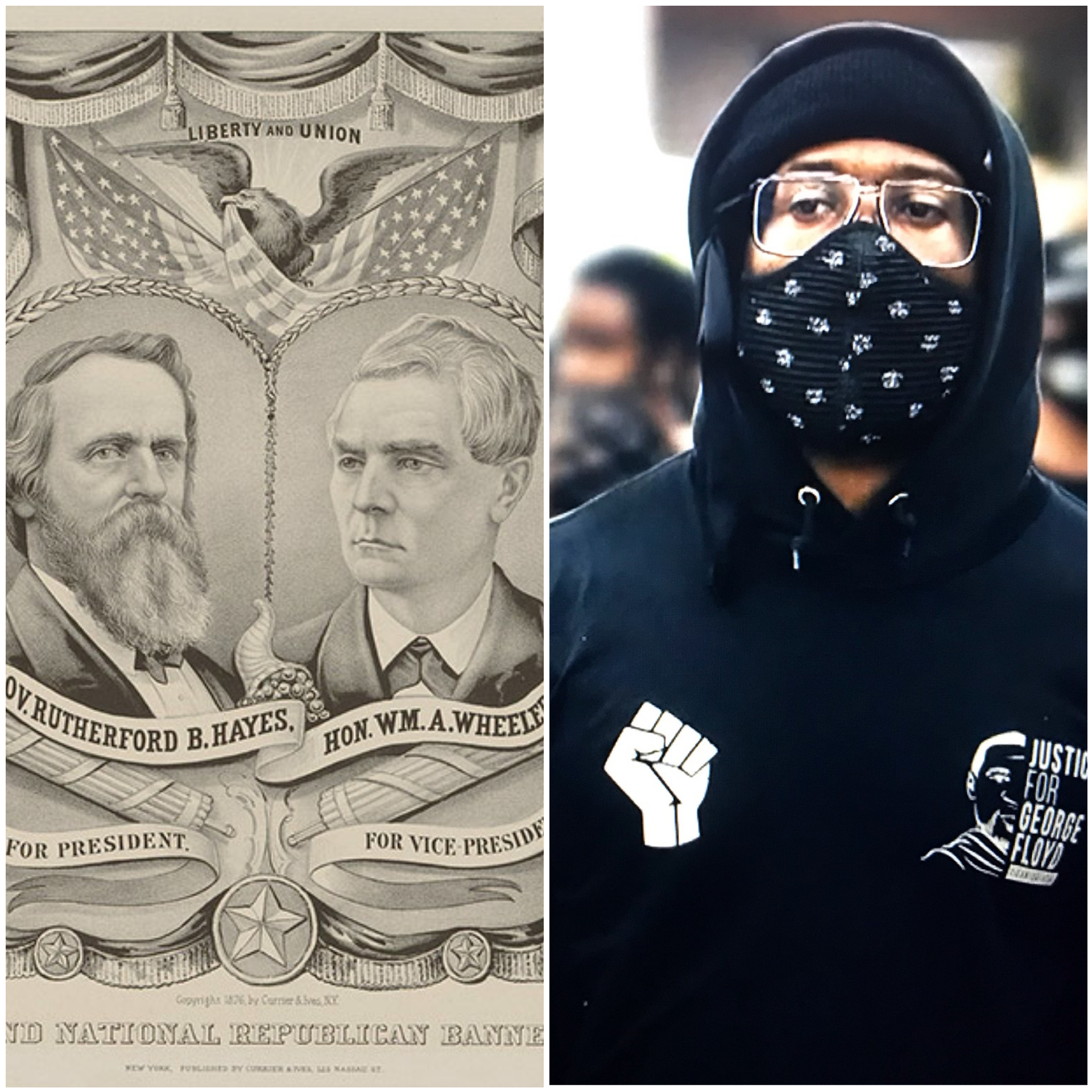Black History
Why The 2020 Election Is Being Compared to Elections After The Civil War

Historians and political scientists are turning to the past to frame the discussion about the more than 50 million Americans who have already voted before Election Day, many of whom have stood in line for hours. Media outlets are comparing an obviously energized electorate to the percentage of voters who participated in the elections after the Civil War, but at least one political scientist, Dr. Sekou Franklin of Middle Tennessee State, hesitates to compare the percentages of voter turnout.
“It’s much easier to make that conclusion if the voter eligible population is very narrow and much smaller,” says Franklin. “So, I’m very reluctant to do century-to-century or regional comparisons when the number of eligible voters was much narrower than today.”
According to USA Today, the nation “saw the highest eligible voter turnout rate, 82.6%, in 1876, when Republican Rutherford Hayes defeated Democrat Samuel Tilden. In 1860, when Abraham Lincoln defeated John Breckinridge, John Bell and Stephen Douglas, 81.8% of eligible voters turned out.”
And voter turnout climbed above 80% in at least four other elections in the 1800s.
Why So High
With the passage of the 13th, 14th, and 15th Amendments, newly freed slaves embraced their right to vote. Before the passage of the Amendment in 1869 granting Black men the right to vote, voting rights advocates questioned the logic behind disenfranchisement and pushed for the inclusion of Black men.
Delegates attending the 1864 National Convention of Colored Men in Syracuse, New York asked, “Are we good enough to use bullets, and not good enough to use ballots?”
Abolitionist Frederick Douglass attended the Convention and said, “We are here to promote the freedom, progress, elevation, and perfect enfranchisement, of the entire colored people of the United States; to show that, though slaves, we are not contented slaves, but that, like all other progressive races of men, we are resolved to advance in the scale of knowledge , worth, and civilization, and claim our rights as men among men.”
And there was Congressional assistance in the effort. In 1867, Republicans in Congress passed a series of Reconstruction Acts, overriding President Johnson’s veto. The first act required former Confederate states to form new governments that enfranchised all “male citizens…twenty-one years old and upward, of whatever race, color, or previous condition” before they could be readmitted to the Union.
The next election saw Black men finally allowed to participate at the polls which explains, in part, the high turnout numbers in 1868, 1872, and 1876.
Franklin points to the impact of what some historians call “the squeeze” or in his words, “white voters in the South who were still committed to the Confederate Cause.”
And he describes the 1876 election as “full of fraud and voter intimidation, particularly talking about African American voters.”
It was the 1877 Compromise when newly elected Republican President Hayes struck a deal to clinch the White House which included removing federal troops from southern states that ushered in the end of Reconstruction.
More than a century after that fateful 1876 election, Franklin cites the issues of today as offering the most striking historical parallels.
“Those were elections in which race and federalism were at the front and center,” he says. “And so I think, if you were to look at the election today and what may be animating in the electorate, on the one hand, you have Black and Latinx voters, perhaps…at least Black voters, some Latinx…and still a pretty dogmatic, white racial grievance that’s gravitated towards Trump. That those things are animated in that election as they were animating in the election in the late 19th century.”

-

 Featured10 months ago
Featured10 months agoCalifornia Is the First State to Create A Public Alert for Missing Black Youth
-

 Featured10 months ago
Featured10 months agoAfrican American Leaders Stay the Course Amid Calls for President Biden To Bow Out of Race
-

 Featured10 months ago
Featured10 months agoThe Debate Fallout Lands on Both Candidates
-

 Featured9 months ago
Featured9 months agoPresident Joe Biden Decides to Withdraw from the Presidential Race
-

 Featured9 months ago
Featured9 months agoIn One of His Final Speeches as President, Biden Says It’s Time for ‘Fresh Voices’
-

 Featured10 months ago
Featured10 months agoPresident Joe Biden Describes Shooting of Donald Trump As ‘Sick’









